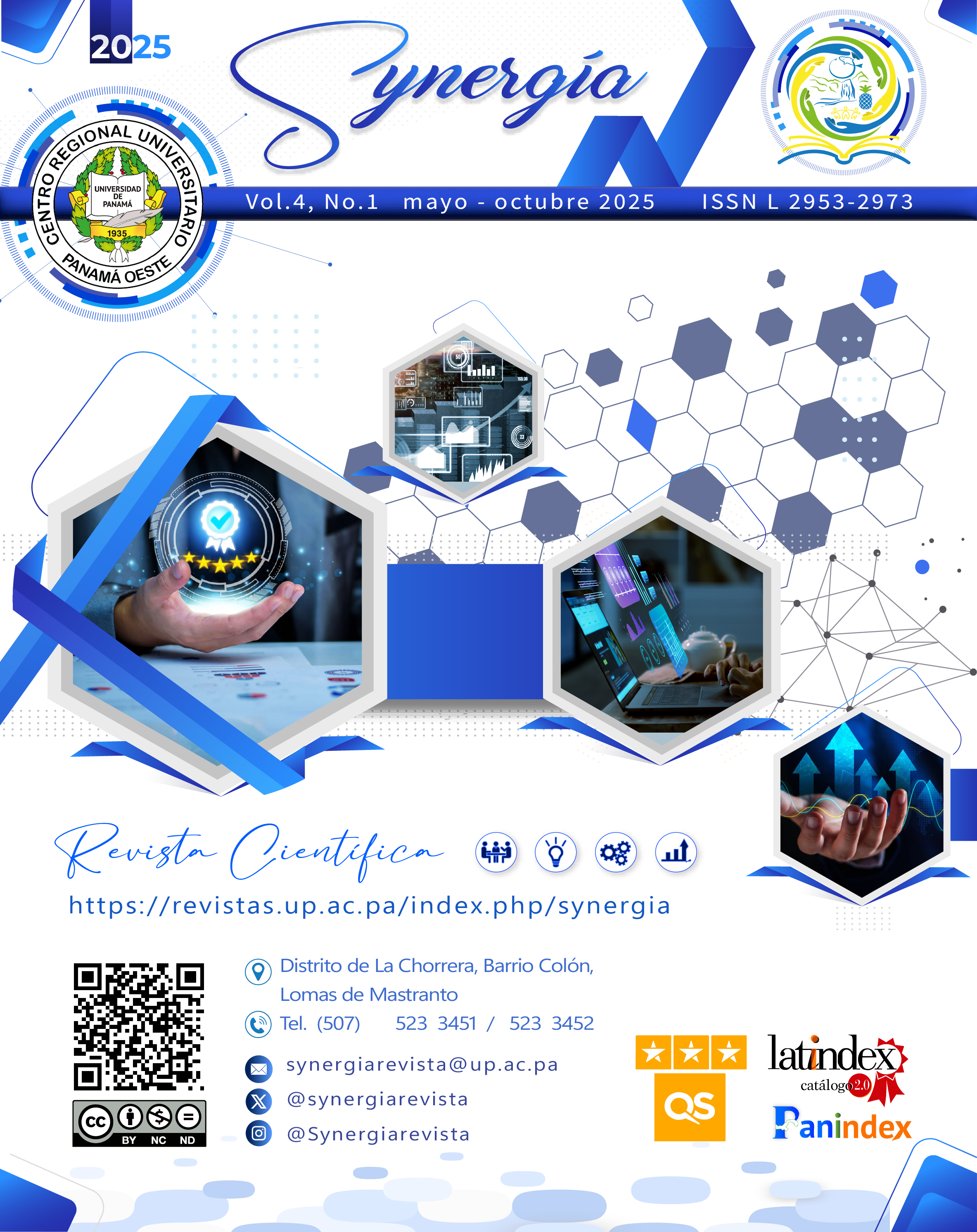

Copyright (c) 2025 Synergía

This work is licensed under a Creative Commons Attribution-NonCommercial-ShareAlike 4.0 International License.
The main objective of the study was to analyze how technological tools impact the learning of English as a foreign language in secondary school students, considering their use, familiarity, and perception of effectiveness in the development of language skills. A quantitative methodology with a non-experimental and descriptive design was used, using a non-probabilistic sample composed of 24 English teachers from the educational region of Central Panama. To collect data, a survey based on the Likert scale was applied, which measured variables such as familiarity with technological tools, their regular use, and the perception of improvements in students' communication skills. The main finding of the study showed a significant correlation between familiarity with tools such as Moodle, Blackboard, Zoom, and Teams, and their regular use in the classroom (r=0.922, p=0.000), as well as a higher correlation between this familiarity and the perception of improvement in skills such as fluency and pronunciation (r=0.963, p=0.000). Likewise, a positive correlation (r=0.934, p=0.000) was identified between the regular use of these technologies and students' communicative progress, highlighting the need for teacher training programs to maximize their effectiveness. In conclusion, the results emphasize that the integration of technological tools in English teaching has a significant positive impact on student learning, especially when teachers are trained in their effective use. The study suggests the importance of pedagogical strategies that combine technology and teacher training to improve the quality of teaching in modern educational contexts.